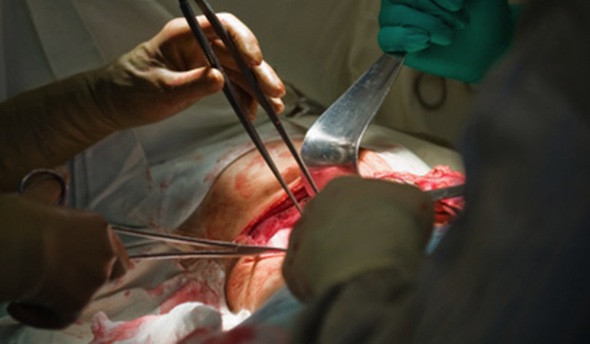New organ donor bill to stop organ harvesting in China
The Voice of Russia

China sees thousands of organ transplantation surgeries every year, though voluntary donations are virtually nonexistent since cutting the body, according to the Chinese beliefs, would mean desecrating it. Because of the strong disapproval of the organs’ removal from the body, the rate of voluntary organ donations is very low, with only 63 cases registered in 2010. The average number is slightly higher, and numbers 130, but still, it is insufficient fulfill the transplantation needs: with the official waiting list for transplants containing as much as 300,000 patients, only 30 of them receive a legal transplant.
The Chinese policy to harvest organs from death row convicts is known, but the prisoners are believed to redeem their souls through an organ donation, and China claimed such donations were only made possible after the prisoners’ consent. However, many human rights organizations question that, as they claim to have evidence sometimes organs have been harvested without consent, or even from the still living donors.
Meng Zhaoping, a mother of an executed prisoner, tried to investigate her son’s death in February 2009. In an interview to AP she stated she was never given the reason for his execution, never did she see his remains. She was convinced that the organs of her son had been harvested while the officials covered it up by disposing of the body.
The Communist Party of China has been denying the fact the death row inmates were used for organs, claiming every organ donation was consensual.
Only recently the fact the organ transplant have been taken from the prisoners was finally acknowledged and several attempts were made crack down on this activity.
The recent crackdown, according to a CBS report, was filed August 16. Former deputy health minister Huang Jiefu, who still heads the ministry’s organ transplant office, told that in the future, organs would be only be accepted from those voluntarily submitted a relevant application to the national organ donation system, called the China Organ Transplant Committee. “I am confident that before long all accredited hospitals will forfeit the use of prisoner organs,” Huang said.
It is questionable however, if this time the bill is going to have an effect, since similar initiatives have been introduced before.
First time, in 2007, the Chinese officials said that they would stop using organs from prisoners, except if an organ was required for their immediate family. However, a rare disclosure from the China Daily Newspaper revealed at that time, that about 65% of all donors were death row convicts. Condemned prisoners are “definitely not a proper source for organ transplants,” the China Daily quoted Huang as saying.
With all those measures taken, the success was barely visible: according to Huang, at the end of 2012 about 64 percent of organs transplanted in Chinawas still taken from prisoners. This year the percentage is 54%.
Nicholas Bequelin, Asia researcher for New York-based Human Rights Watch, assumed China was so hooked up on death row convicts, because no clear system was established to systematize the donor-transplant operations.
“All organ transplants had to come from somewhere,” Bequelin said, acknowledging the obvious flaws in the systems. “If you’re a prisoner and you’re about to be executed, you do not have a real choice, especially in a system … (that) is completely untransparent and notorious for abuses against prisoners, as the Chinese system is.”
However, there seems to be a bigger problem as there have been evidence gathered proving that death row cons are not the only source for organ harvesting, and hopefully, the newly-passed bill will stop that practice as well.
According to phylly.com, China claims to perform up to 20,000 transplants every year, with more than 90 percent of the organs coming from prisoners. However, the records provided by the Amnesty International, the execution rate is 1,700 a year, and this is a moderate estimate. The real number of the executed is not an open record and is considered a state secret. At the same time, unlike the situation in the West, the patients don’t stay on wait-list for too long, very often even having transplantation procedure performed in advance.
In other words, China seems to be murdering its own people in course of the forced organ harvesting procedure. This fact was acknowledged by the US government as a result of the recent introduction of Resolution 281 in the House of Representatives.
Since voluntary organ donations was made practically impossible due to the traditional Chinese beliefs, based on the evidence acquired, donors are very likely to come from practitioners of Falun Gong, a meditation system based on ancient Chinese principles.
The increase of organ transplants surged in 1999 which coincides with the time mass persecution of Falun Gong started. During questioning by undercover investigators surgeons unknowingly admitted that they whether worked with or had sources to supply them with organs taken from Falun Gong practitioners.
Falun Gong practitioners comprise about two thirds of all prisoners of China’s reeducation-through-labor camps, and are subjected to the most heinous and intricate tortures. They also have the longest sentences. What’s more, they regularly undergo whole body exam, and as H.R. 281 states, they are not done for their general well-being. The new bill might an essential step to end the massacre of the Falun Gong practitioners in camps.
Voice of Russia, beforeitsnews.com, cbsnews.com, philly.com
